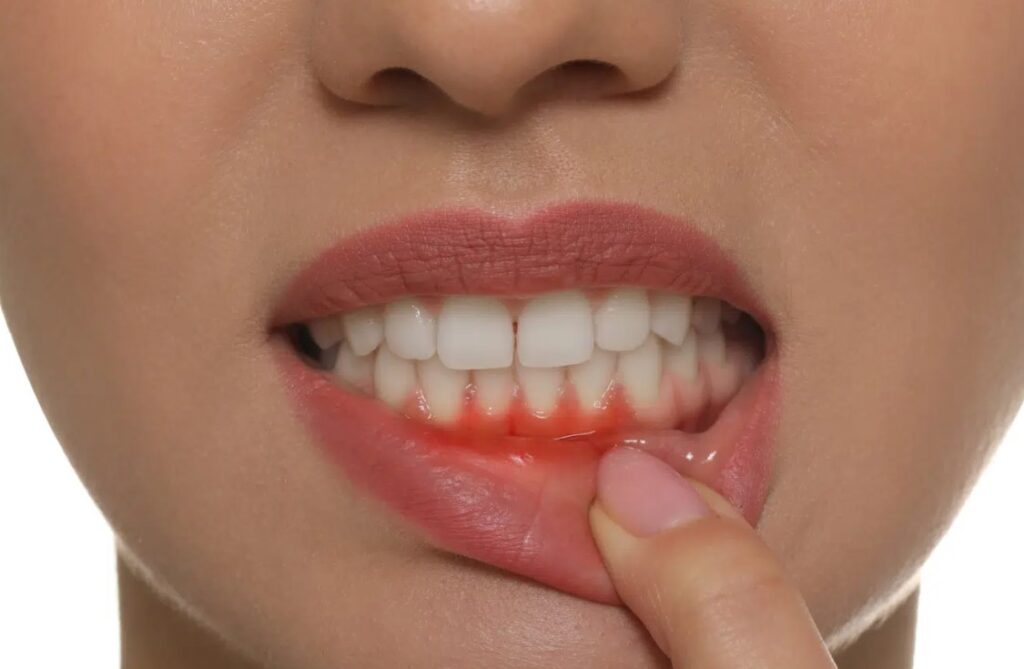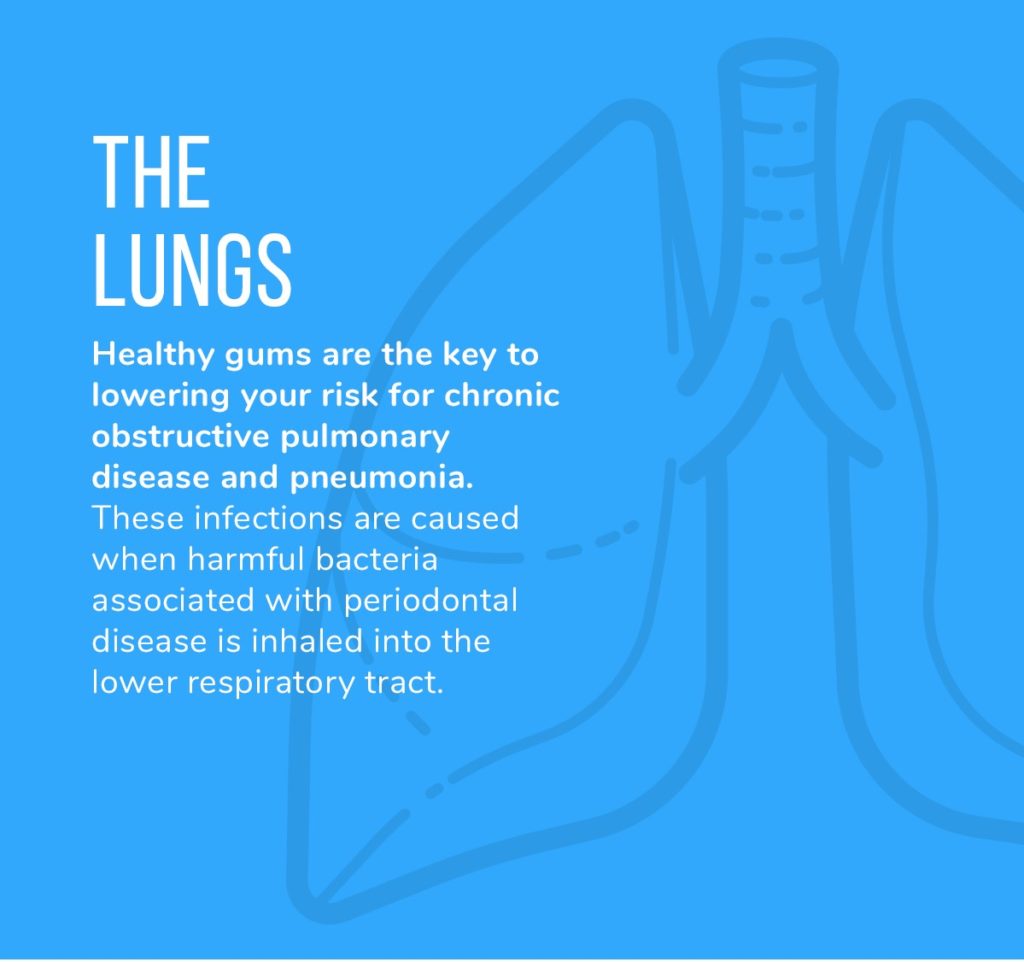
Gum disease, also known as periodontal disease, is a common yet serious condition that affects the gums and supporting structures of the teeth. Left untreated, it can lead to tooth loss and other health complications. At GPS Dental, we believe in educating our patients on the importance of gum health and providing effective treatments to keep your smile strong and healthy. Let’s discuss the causes, symptoms, prevention, and treatment options for gum disease, as well as why maintaining healthy gums is essential for overall well-being.
What is Gum Disease?
Gum disease is an infection of the tissues that support your teeth. It is caused by the buildup of plaque, a sticky film of bacteria that forms on teeth. When plaque isn’t removed through regular brushing and flossing, it hardens into tartar, leading to inflammation and infection in the gums. There are two main stages of gum disease:
1. Gingivitis (Early Stage)
Gingivitis is the mildest form of gum disease and is characterized by red, swollen gums that may bleed when brushing or flossing. At this stage, the condition is reversible with good oral hygiene and professional dental cleanings.
2. Periodontitis (Advanced Stage)
If left untreated, gingivitis can progress into periodontitis, a more severe form of gum disease. Periodontitis causes the gums to pull away from the teeth, forming pockets that become infected. This can lead to bone loss, loose teeth, and eventually tooth loss if not managed properly.
Causes and Risk Factors of Gum Disease
Several factors contribute to the development of gum disease, including:
- Poor Oral Hygiene: Not brushing and flossing regularly allows plaque and tartar to build up, increasing the risk of gum infections.
- Smoking and Tobacco Use: Smoking weakens the immune system, making it harder for the body to fight off infections, including gum disease.
- Genetics: Some individuals are more genetically prone to gum disease, even if they practice good oral hygiene.
- Hormonal Changes: Pregnancy, menopause, and other hormonal fluctuations can make gums more sensitive and susceptible to gum disease.
- Chronic Health Conditions: Diabetes, heart disease, and autoimmune disorders can increase the likelihood of developing gum disease.
- Poor Diet: A diet lacking in essential nutrients, particularly vitamin C, can weaken gum tissue and make it more vulnerable to infection.
Signs and Symptoms of Gum Disease
Recognizing the early signs of gum disease can help prevent severe complications. Common symptoms include:
- Red, swollen, or tender gums
- Bleeding gums when brushing or flossing
- Persistent bad breath
- Receding gums (gums pulling away from teeth)
- Loose or shifting teeth
- Pain when chewing
- Pus between teeth and gums
If you experience any of these symptoms, it’s essential to visit a dentist as soon as possible for evaluation and treatment.
How to Prevent Gum Disease
Preventing gum disease is easier than treating it. Here are some key steps to maintaining healthy gums:
1. Maintain Good Oral Hygiene
Brushing twice a day and flossing daily can help remove plaque and prevent tartar buildup. Using an antibacterial mouthwash can also help reduce bacteria in the mouth.
2. Visit Your Dentist Regularly
Professional cleanings and exams every six months allow your dentist to detect early signs of gum disease and remove tartar that cannot be eliminated by brushing and flossing alone.
3. Quit Smoking
Tobacco use is a significant risk factor for gum disease. Quitting smoking can greatly improve gum health and overall oral health.
4. Eat a Balanced Diet
Consuming a diet rich in vitamins and minerals, particularly vitamin C and calcium, can strengthen your gums and teeth.
5. Manage Health Conditions
If you have diabetes or other chronic conditions, keeping them under control can reduce your risk of gum disease.
Treatment Options for Gum Disease
If gum disease has already developed, several treatment options are available depending on its severity:
1. Professional Dental Cleanings
For patients with mild gingivitis, professional cleanings and improved oral hygiene may be enough to reverse the condition.
2. Scaling and Root Planing
This deep cleaning procedure removes plaque and tartar from below the gum line and smooths the roots of the teeth to promote healing.
3. Antibiotic Therapy
Antibiotic mouth rinses or gels can help control bacterial infections in the gums.
4. Laser Therapy
Laser treatment is a minimally invasive procedure that removes infected tissue and promotes gum healing.
5. Surgical Treatments
For advanced periodontitis, surgical procedures such as gum grafts or flap surgery may be necessary to restore gum tissue and bone support.
The Connection Between Gum Disease and Overall Health
Research has shown that gum disease is linked to several systemic health conditions, including:
- Heart Disease: Bacteria from gum infections can enter the bloodstream and contribute to heart problems.
- Diabetes: Gum disease can make it harder to control blood sugar levels, increasing the risk of complications in diabetic patients.
- Respiratory Issues: Bacteria from the mouth can be inhaled into the lungs, leading to respiratory infections or worsening conditions like COPD.
- Pregnancy Complications: Pregnant women with gum disease may be at a higher risk for premature birth and low birth weight.
Trust GPS Dental for Your Gum Health
At GPS Dental, Dr. Skrobanek and his expert team are dedicated to helping our patients maintain healthy gums and prevent gum disease. Our team provides comprehensive periodontal care, including early detection, deep cleanings, and advanced treatment options. If you’re experiencing symptoms of gum disease or want to schedule a routine checkup, contact us today. Together, we can protect your smile and overall health for years to come!
Dr. Gary P. Skrobanek is a dental implant dentist and his experienced, friendly team at GPS Dental offer affordable family dentistry and gentle dental care in the San Antonio, TX area. Our Brooks City Base dentist office is conveniently located and offers early morning appointment times Monday through Friday to meet your needs. At GPS Dental, we provide most dental services, from family and general dentistry to dental implants, sleep apnea, TMJ / TMD Treatment, cosmetic dentistry and much more. We accept most dental insurance plans and offer affordable financial solutions for any budget. Call us at (210) 633-3477 to make an appointment.










